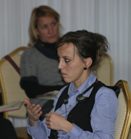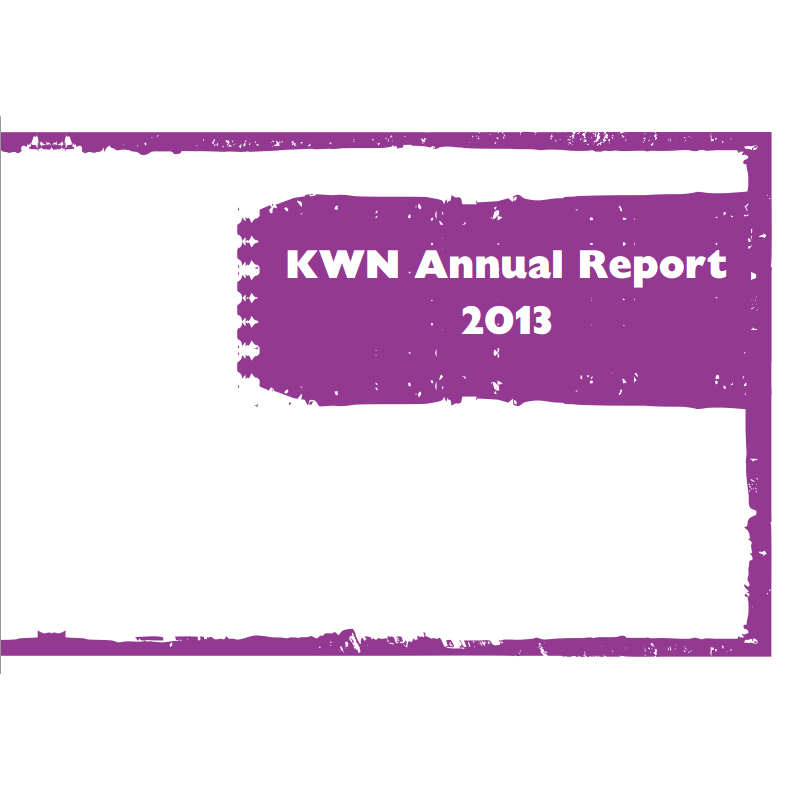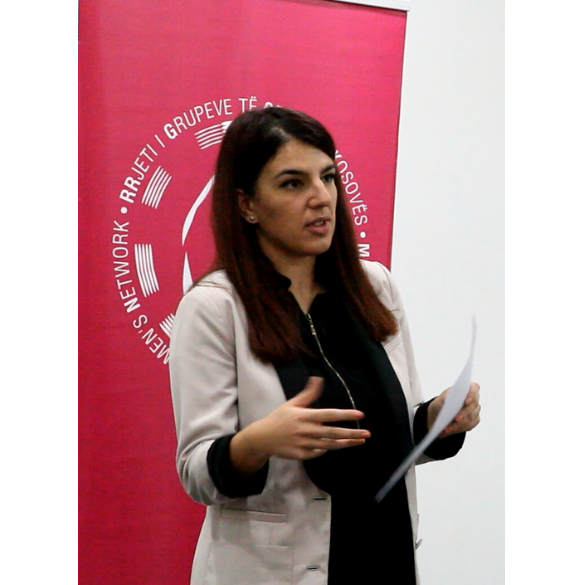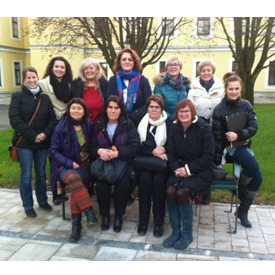Krenare Ajdini found her beginnings as a women’s rights activist while working as a sign language interpreter during KWN meetings. She attended her first KWN meeting in 2012 as an interpreter for the Association of Deaf People (ADP).
“During this meeting I learnt a lot of new information about NGOs and their work,” she said. “When I saw the possibilities that the network offers for women, I decided to start a new NGO for deaf women. I want them to have more space, since this space wasn’t provided in the other NGO so far.”
In July 2013, Krenare formed the Association of Deaf Women in Prizren, an NGO aiming to empower deaf women. She is aware of the many issues deaf women face, including insufficient interpreters. For example, if a woman would like to receive a medical check-up, without an interpreter it is very hard for her to explain her needs to the doctor. Nor can she understand the doctor’s diagnosis or treatment. The Association for Deaf Women seeks to help women resolve these issues.
Krenare admits that creating a new organization is no easy task: compiling a statute, forming a board and other administrative issues. However, “KWN staff were always there to help me with documents, procedures and any other issue,” she said.
“So far, I am really satisfied with the interest and cooperation shown by our NGO members,” Krenare said. “Together we’re working on finding ways to fund our ideas. In this way we will be able to empower deaf women in our municipality.”






